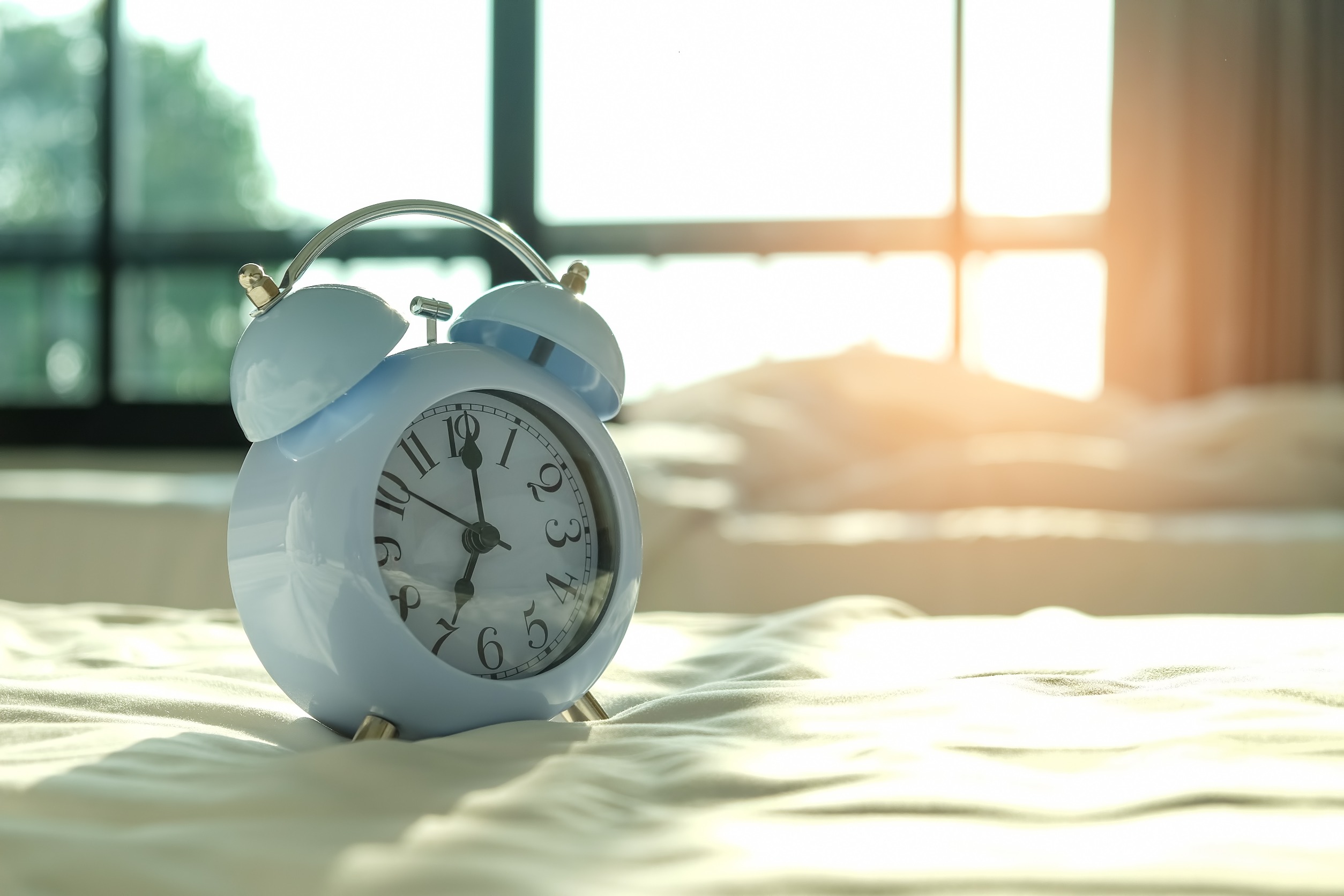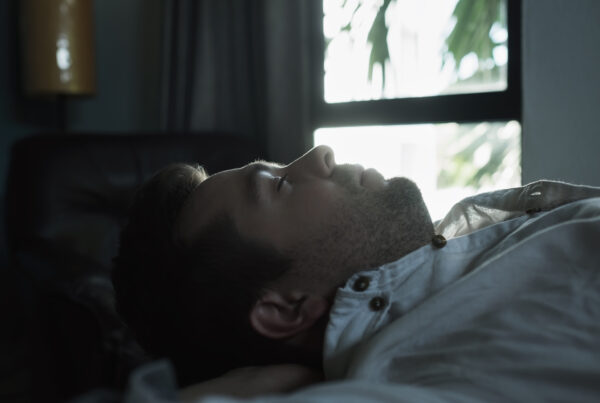”Question: Is circadian rhythm connected to the time I spend outdoors?
Reading time: 9 Minutes
MWi Hack:
-
Learn about the role the circadian rhythm plays in the quality of sleep and how to maintain a healthy circadian rhythm.
MWi Summary:
- The circadian rhythm is your body’s 24-hour internal clock and is responsible for your sleep-wake cycle.
- You can do the following to help reset and maintain a healthy circadian rhythm:
- Have a consistent night time and morning routine
- Exercise often
- Avoid alcohol and caffeine in the evening
- Limit screen time
- Avoid naps
- Gradually move your bedtime in half-hour shifts
- Your circadian rhythm may be in need of a reset if you have trouble falling asleep, staying awake in the evening, or waking in the mornings.
Circadian rhythm, the name given to your body’s 24-hour internal clock, controls your body’s sleep-wake cycle.
“It’s not just for sleep,” says behavioral sleep medicine psychologist Alicia Roth, PhD. “It’s for everything that goes on in our body. We have internal clocks for our hormones, our immune system, our digestion. Our organs all run on some sort of timing system.”
And everyone’s internal clock varies — you might be an early riser, a night owl or somewhere in between.
If you’ve been feeling tired and think your internal clock is off, can you reset your circadian rhythm? Dr. Roth gives us advice on how to improve our sleep schedule.
Can you reset your circadian rhythm?
Yes, you can reset your circadian rhythm. But first, it’s important to understand your own individual circadian rhythm.
“I tell a lot of patients that they’re trying to fit a square peg into a round hole,” says Dr. Roth. “For example, they might be natural night owls and their body wants to go to bed at midnight, but they’re pushing their body to go to bed at nine.”
In this example, because your body is not set up to go to bed that early, you might have trouble falling asleep and trouble waking up at the time you’d like.
“It’s also ideal to be aware of your circadian rhythm because it also dictates when you’re going to be most alert during the day and when you’re going to be the most productive,” says Dr. Roth. “People who are night owls tend to be most productive in the later evening. And people who are morning people tend to be most productive in the morning.”
Factors like light, temperature and when you eat affect your circadian rhythm as well. These are known as zeitgebers, external cues that impact your internal clock.
“So the sun is a zeitgeber,” says Dr. Roth. “Our school schedule, our work schedule, when we exercise, those are all zeitgebers. We can do things to change our circadian rhythm by what we expose ourselves to.”
How to reset your circadian rhythm
“Resetting your circadian rhythm really means resetting the timing of when you sleep and when you wake up,” says Dr. Roth. “It has to do more with the schedule of your sleep, rather than how well you fall asleep.”
The following tips can help reset your circadian rhythm.
Have a routine
If you’ve been going to bed at all different hours of the night, try setting up a schedule and sticking with it. Once you’ve established a routine, you’ll be able to fall asleep and wake up easier.
It’s also important to stick close to that schedule on weekends or days off.
Exercise
Overall, exercise helps with melatonin production, which can help you sleep. And working out can help your body’s other systems sync with your circadian rhythm.
But when you work out and how you feel from it is different for everyone.
“Some people exercise in the morning because it makes them feel more energetic,” says Dr. Roth. “For others, it makes them tired, so they save it for after work.”
Avoid alcohol and caffeine in the evening
Pay attention to when you have that last cup of coffee. Drinking caffeine, which is a stimulant, can keep you awake late into the evening, when you’d ideally like to be winding down.
If you’re a fan of a nightcap, reconsider drinking alcohol in the evening, too. While you may find you’re sleepy or drowsy after drinking alcohol, it can affect your circadian rhythm in the long run.
Limit screen time
If you have a habit of scrolling through social media right before bedtime, stop.
The blue light from your cellphone and tablets restricts the production of melatonin and leads to a disruption in your circadian rhythm.
Try to avoid screens 30 minutes before bedtime.
Avoid naps
While you may love taking an afternoon nap, that hourlong (or more) snooze can harm your circadian rhythm by making it harder to fall asleep at night.
If you do need to take a nap, limit it to 30 minutes or less and aim to nap before 3 p.m.
Gradually move your bedtime
Don’t expect to fix or reset your circadian rhythm overnight. Dr. Roth recommends gradually moving your bedtime. This can be done in half-hour shifts.
For example, if you currently go to sleep at 1 a.m. and wake up at 9 a.m., focus on going to bed at 12:30 p.m. and waking up at 8:30 a.m. for a week, and then shift those times back another half-hour the following week.
Why your circadian rhythm matters
Your circadian rhythm affects all aspects of your life, says Dr. Roth.
“For example, if your sleep times are off, your hunger could be off or your eating times,” says Dr. Roth. “We often see people who are sleep deprived that their hunger changes, either goes up or down and the timing of when they get hungry can change.”
How to tell it’s time for a reset
You might need to reset your circadian rhythm if you:
- Have trouble falling asleep.
- Have trouble staying awake in the evening.
- Have trouble waking in the morning.
- Have trouble focusing on daily tasks and responsibilities.
If you’re having trouble resetting your circadian rhythm on your own, a sleep medicine specialist or a behavioral sleep medicine psychologist can help determine if you have a circadian rhythm disorder.
“A circadian rhythm disorder is when your preferred sleep schedule isn’t aligned with what you want it to be,” says Dr. Roth. “Your doctor can recognize these disorders, do an assessment of these disorders and figure out how to help treat them.”
Dr. Roth says that treatments can include changing schedules, habits and behaviors, using light therapy and adding melatonin supplements.
“Our circadian rhythms evolve over time,” says Dr. Roth. “As we age, our circadian timing gets earlier. People in their 50s, 60s and 70s may start to want go to bed earlier and wake up earlier. If you were a night owl as a teenager, you could be a morning person when you’re an older adult.”






